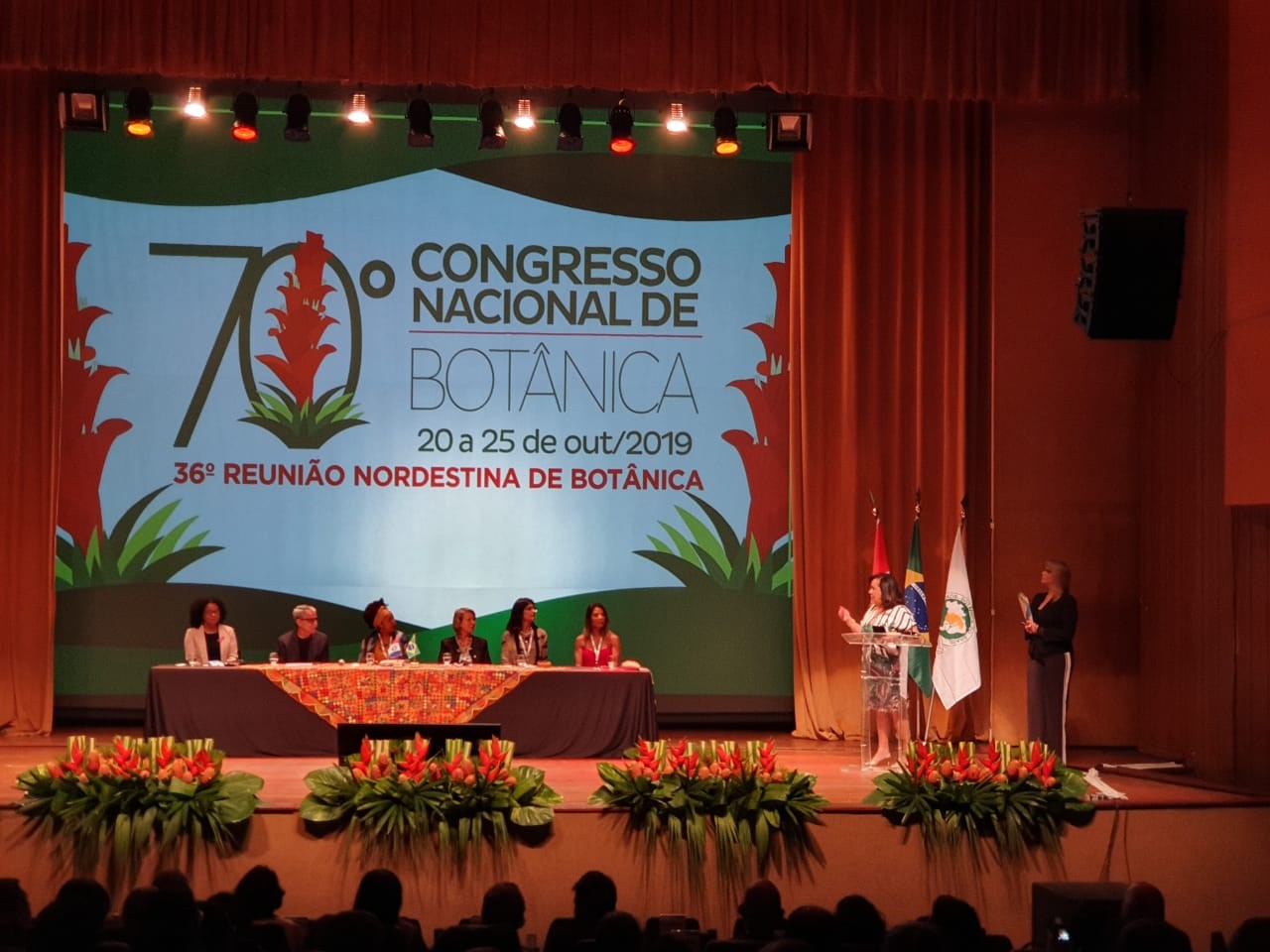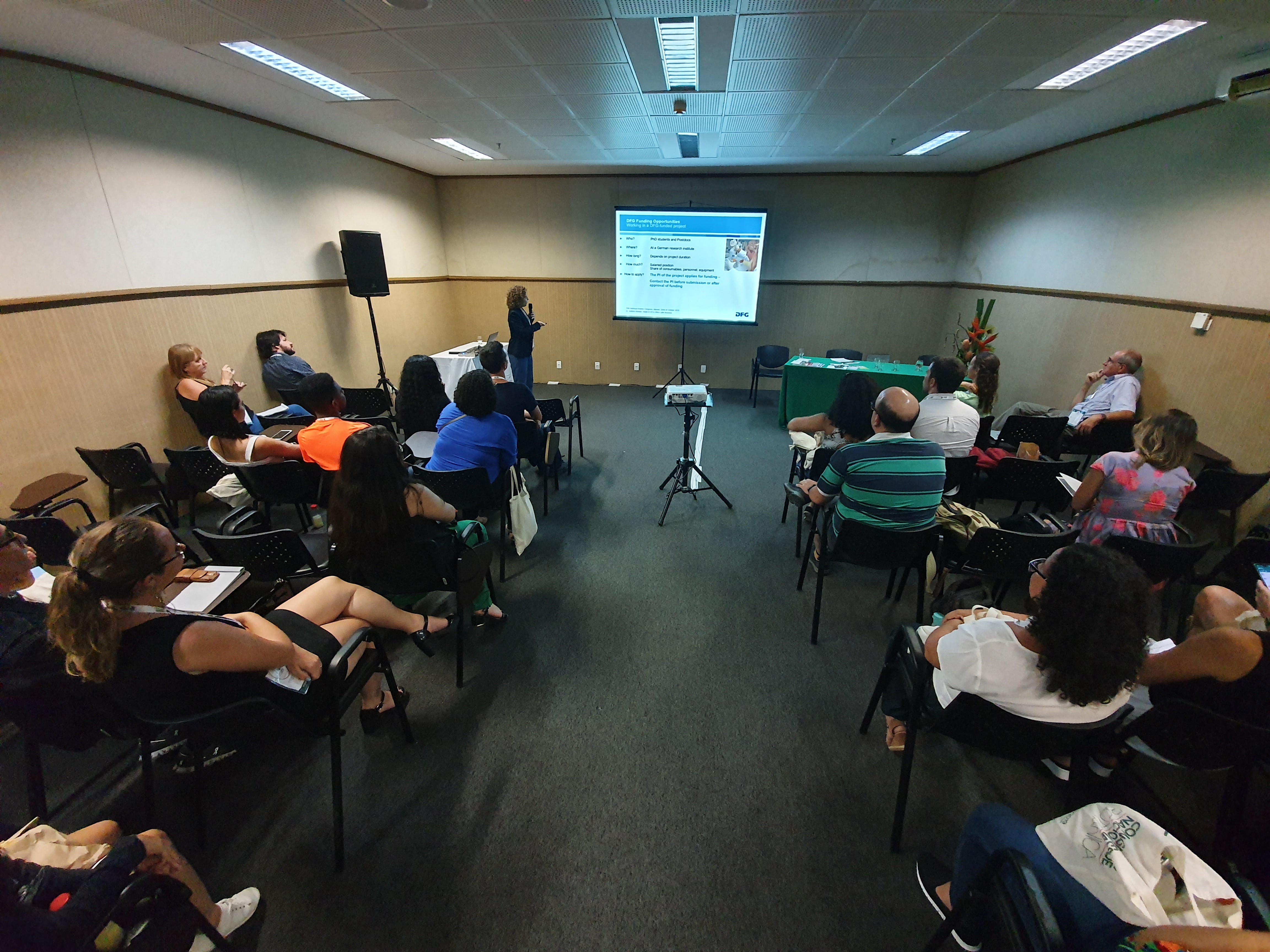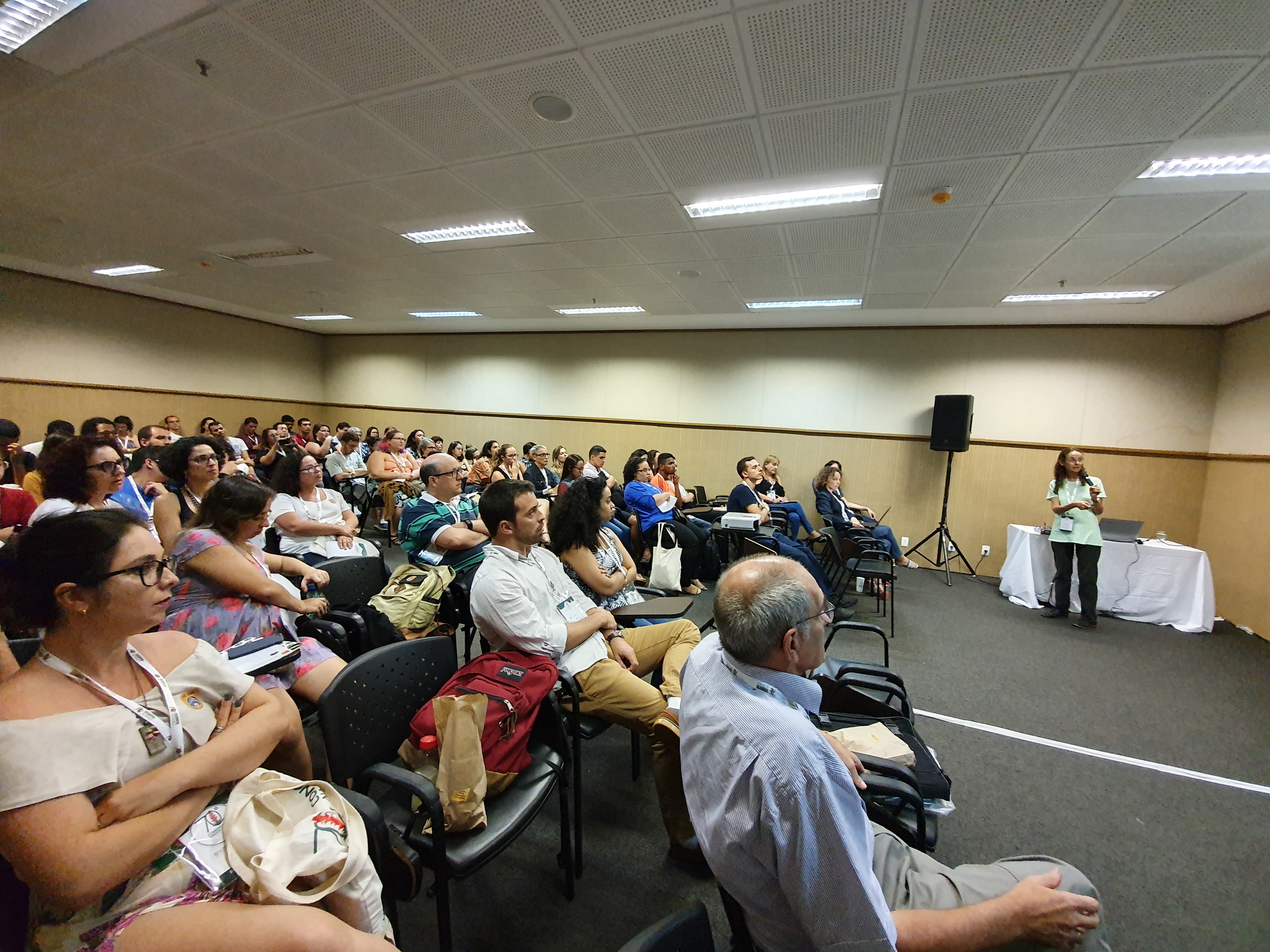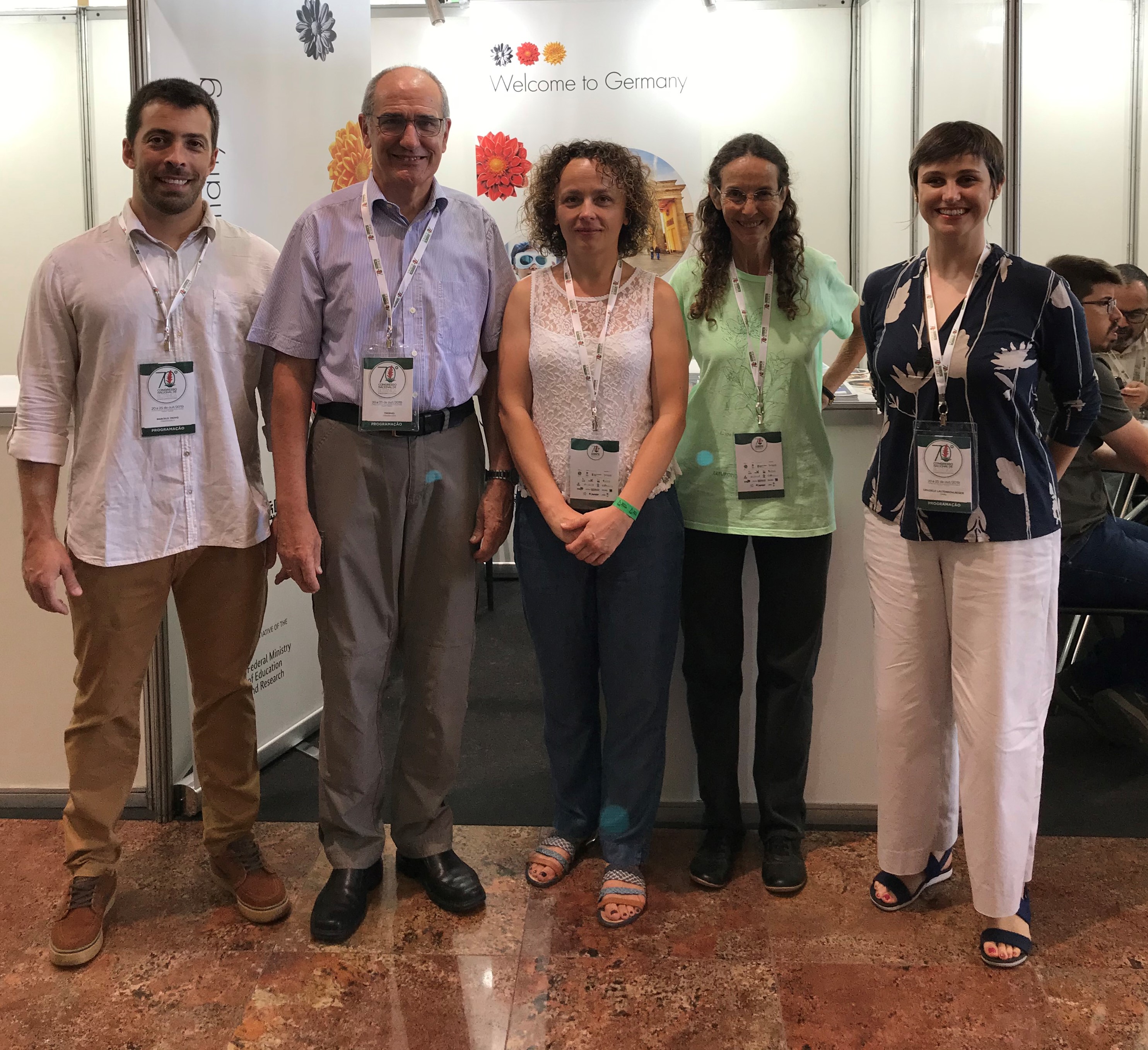Scientists at 70th Brazilian Botanical Congress Discuss Current Problems in Botany and Biodiversity
(08.11.19) Our environment and the protection of our forests are issues close to the hearts of the scientific community and the general public alike. Because of their unique properties, we all depend on plants, using them as food, pharmaceutical ingredients and in cosmetics. But we are often unaware of the extent to which we use raw plant materials and what impacts this has on the environment. This and other topics were on the agenda at the 70th Brazilian Botanical Congress in Maceió, which was also attended by the Research in Germany initiative.
Opening of the conference
© DAAD
The main theme of the traditional event, hosted by the Brazilian Botany Society (Sociedade Brasileira de Botânica) and held in Maceió for the second time between 20 and 25 October, was the conservation of plant biodiversity and the protection of the biome in northeastern Brazil. Although the marine biome was not originally intended to be a subject of discussion, the recent oil spill off Brazil's northeast coast has intensified existing outrage.
During the event it was proposed that, at the close of the conference, the Brazilian Botany Society should write an official letter to the Brazilian government calling for more effective measures with respect to this incident.
Many participants at the opening event also took a political stance, expressing their dismay at the recent cuts in research funding and with regard to the attitude of the current Brazilian government, which amounts to a delegitimisation of science, scientists and their academic work. There was also an appeal to the botany community to persevere in the face of such attitudes.
At the events that formed part of the workshop organised by the Research in Germany initiative and held during the conference, Brazilian and German researchers discussed their experiences of botanical research in Germany and the funding opportunities available for research projects. In his presentation, Prof. Dr. Thomas Stützel, Professor of Plant Evolution and Biodiversity at Ruhr-Universität Bochum, spoke about "The Impacts of Research Cooperation between Brazil and Germany on Science and Research". He described his personal experiences in German-Brazilian research, which go back over 30 years to when he was sent to Brazil with a DAAD research fellowship. This was followed by a number of joint projects with Brazilian researchers, including work carried out with Prof. Marcelo Trovó from the Department of Botany at UFRJ's Institute of Biology in Rio de Janeiro, who also gave a presentation at the conference.
Trovó worked as a postdoctoral researcher in Germany, where he was supervised by Stützel. He gave a vivid illustration of bilateral cooperation from the Brazilian perspective. In 2013, the two researchers completed a project on the structure of inflorescences in Eriocaulaceae (pipeworts), which Stützel had begun in 1987. Trovó spoke about his practical experiences of researching and living in Germany. He emphasised the supportive and encouraging attitude of his supervisor during his postdoctoral fellowship, which enabled a long-term collaboration between the two researchers. He added that Stützel was thinking long-term when he allowed Trovó to take a two-month break from his research to apply for a professorship at UFRJ. His supervisor said at the time that "it would be more valuable to him for me to invest in my application process so as to ensure a long-term collaboration than to insist that I worked for another two months to write two more papers," said Trovó.
Many of the 100 or so workshop participants were very interested in opportunities for exchange, research and scientific cooperation with Germany. After the events the representatives of the DAAD, Graziele Lautenschlaeger, and the DFG, Dr. Kathrin Winkler, spoke to many conference participants, giving them individual advice.
During the conference, the Graziela Maciel Barroso Medal was awarded to Professor Dr. Maria Luiza Porto (UFRGS, a DAAD alumna), whose career was also established on the basis of an important cooperation with Germany. The medal is named after a botanist who catalogued the majority of Brazilian plants.



